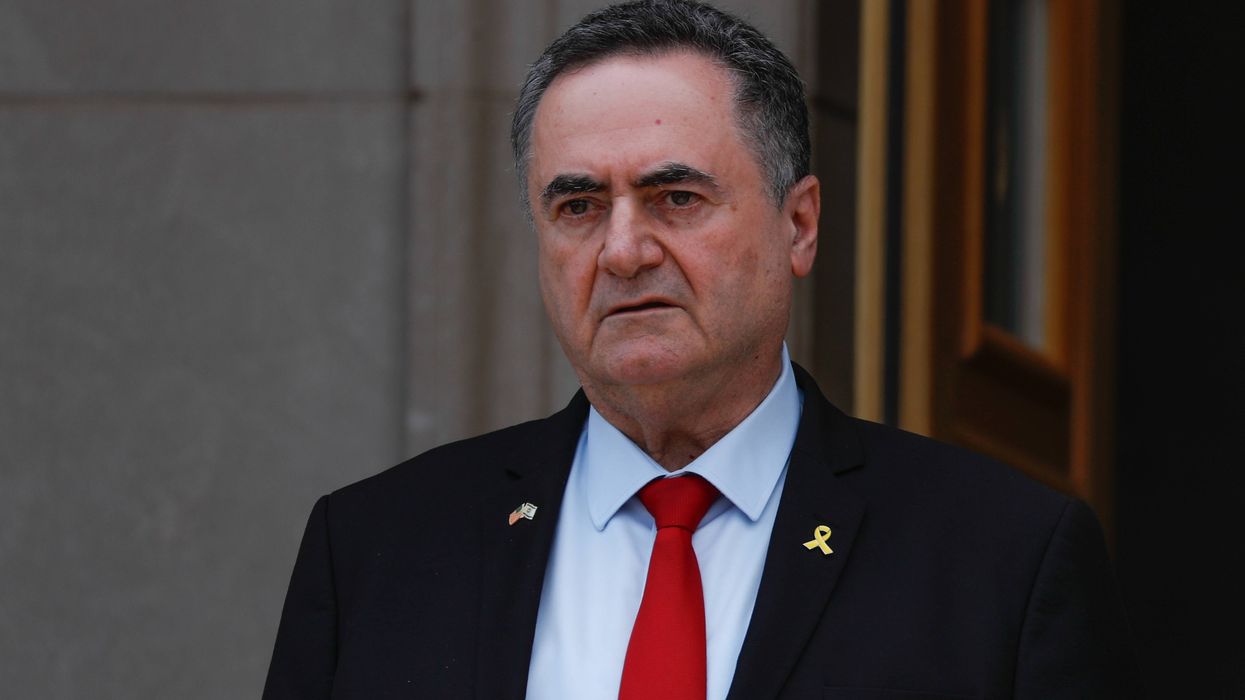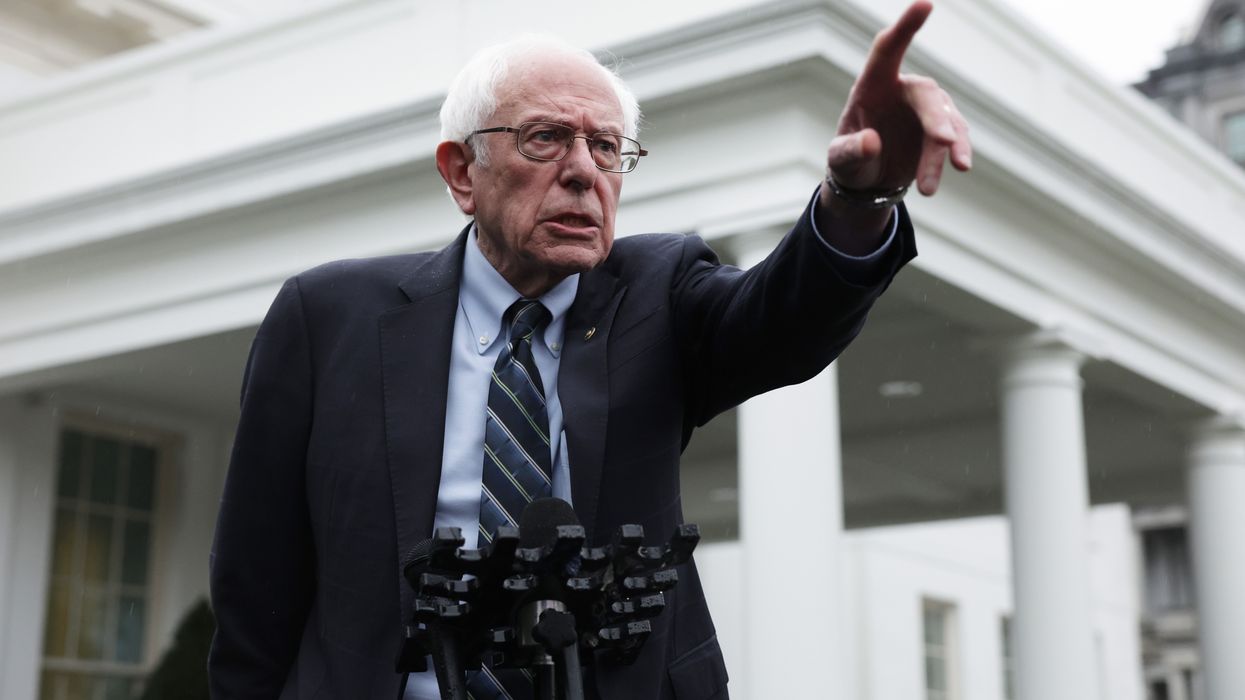May, 04 2020, 12:00am EDT

For Immediate Release
Contact:
Joe Karp-Sawey, media manager,Tel: +44 (0)7711 875 345,Email:,joe.karpsawey@globaljustice.org.uk
With Trade Talks Starting, U.S. and UK Unions and Public Interest Groups Demand a Deal that Puts People and the Planet First in Letter to Trade Ministers
With most of the world focused on stopping the Covid-19 pandemic, the Trump and Johnson administrations are moving forward this week with US-UK trade negotiations that civil society groups in both countries worry could privilege corporate profits at the expense of the environment, consumer safety, public health and worker rights.
WASHINGTON
With most of the world focused on stopping the Covid-19 pandemic, the Trump and Johnson administrations are moving forward this week with US-UK trade negotiations that civil society groups in both countries worry could privilege corporate profits at the expense of the environment, consumer safety, public health and worker rights.
Today a powerful and diverse array of unions and public interest groups from both sides of the Atlantic sent a unified message that trade negotiations between the United States and United Kingdom must prioritize working families, public health and the environment over corporate profits.
The organizations expressed their concerns that a U.S.-UK Free Trade Agreement could pose risks to the wellbeing of people and the planet. The groups -- which include environmental, animal welfare, health, food, farming, labor, digital, development, faith and social justice organizations -- called on the governments of both countries to conduct transparent negotiations. They demanded the inclusion of binding climate and labor standards and the exclusion of terms that undermine consumer health and safety, financial, privacy and other public interest safeguards.
A PDF of the letter, with the complete list of signing organizations, is available at:
https://www.citizenstrade.org/ctc/wp-content/uploads/2020/05/TransatlanticTradeStatement_May2020.pdf
Quotes from signatories follow.
"The climate crisis demands a wholesale transformation of status quo trade policy. Any trade agreement worth enacting must support -- not undermine -- action on climate change. It must include binding climate standards, including a requirement for each country to fulfill the Paris Climate Agreement, so that corporations cannot shift their climate pollution to countries with lower standards. And it must entirely exclude the Investor-State Dispute Settlement (ISDS) system that corporations have used to challenge climate policies."
--Ben Beachy, Director of the Sierra Club's Living Economy Program
"Today, high prescription drug prices force people to choose whether to take the medicines they need, to ration, or simply go without needed treatments in order to be able pay for other necessities like food and shelter. The recent coronavirus pandemic has held a magnifying glass to the inequality of our healthcare system. This immoral system is further entrenched by powerful companies that use complicated trade negotiations to lock in current U.S. drug policies and prevent Congress from taking reasonable steps to curb drug price gouging and export our bad policies to our trade partners. A U.S.-UK deal should leave the National Health Service off the table and exclude terms that would raise drug prices in either country."
--Sister Simone Campbell, Executive Director, NETWORK Lobby for Catholic Social Justice
"We cannot allow U.S.-UK negotiations to produce yet another 'free trade' deal that empowers multinational corporations to pursue their global deregulation agenda. Such deals undermine government policies that protect local farmers' livelihoods, help countries maintain food self-sufficiency and preserve the environment for future generations. We caution against any provisions that threaten safe food, clean water, and common-sense consumer labeling."
--Wenonah Hauter, Executive Director, Food & Water Watch
"Our approach to trade policy needs to be fundamentally overhauled to benefit working families, not just the executives and large shareholders of multinational corporations. This is especially true in this moment, when workers worldwide face unprecedented threats to their ability to earn a living. Any new trade deal, including with the United Kingdom, must include stronger protections for workers, not increased incentives for corporations in search of the lowest wages and weakest labor standards. Workers in call centers and other industries are tired of agreements that enable corporations to pit American workers against workers in other countries in a race to the bottom, instead of raising wages and standards for all workers and creating good jobs here in the U.S."
--Dan Mauer, Director of Government Affairs, Communications Workers of America (CWA)
"Fixing an existing bad deal like NAFTA to try to reduce its ongoing damage is different from creating a good trade pact from scratch. A good U.S.-UK agreement would be about production, not deregulation with trade terms that benefit workers and farmers in both countries and protect the environment, but none of the corporate giveaways found in past pacts that undermine financial regulation and food and product safety and empower monopolistic online firms to threaten our privacy and dodge accountability for selling us fake and dangerous products."
--Lori Wallach, Director of Public Citizen's Global Trade Watch
"If the UK is to act on the environmental and social crises we face, or lead international climate talks with integrity, we cannot chase a trade deal with a nation that is abandoning climate commitments and defending polluting industries. Rules that prevent overuse of vital antibiotics on livestock or stop dangerous pesticides being sprayed on our food cannot be traded away in a US deal. Now is not the time to be putting the standards that protect our health and environment on the line."
--Kierra Box, Friends of the Earth EWNI
"The Government has failed to convincingly set out what it hopes to achieve through a US-UK trade deal, despite the risks it could pose to the environment, food standards and public health. It is difficult to see how the deal is consistent with our climate change commitments, especially the goal of net-zero by 2050. The deal poses severe risks to UK agriculture and food standards, which the Government has refused to protect in law. And the deal threatens the NHS and medicines pricing - a key priority for US negotiators."
--David Lawrence, Trade Justice Movement
"Our precious and beloved NHS must not be 'on the table' in trade negotiations with the US. We don't believe our Prime Minister when he says it isn't. Trump wants to make profits from our valuable patient data, let US-based companies take over providing some NHS services, deprive our universal and comprehensive service of its controlled drug costs and flood our markets with unhealthy food and drink. More and more private companies - especially US ones - already profit from our NHS. Keep Our NHS Public (KONP) wants a complete re-nationalisation of the National Health Service. Trade - especially in health - should be in the public interest, not for private enrichment. No public service should be 'tradeable'' within trade deals."
--John Puntis, Keep our NHS Public
"Coronavirus has exposed the flaws in the pro-corporate agenda that this trade deal is intended to entrench - from weakening public services, to bringing the market into health care, driving up medicine prices and lowering safety standards. Whatever Johnson and Trump's rhetoric, the deal will have very little impact in getting the real economy going again. The most optimistic estimates predict at most a fraction of a percent in growth. All this type of deal will do is tie the hands of the government at a time when they need full scope to provide economic stimulus, a green recovery and to protect jobs.."
--Jean Blaylock, Global Justice Now
Global Justice Now is a democratic social justice organisation working as part of a global movement to challenge the powerful and create a more just and equal world. We mobilise people in the UK for change, and act in solidarity with those fighting injustice, particularly in the global south.
020 7820 4900LATEST NEWS
YouTube, TikTok Deleted ‘60 Minutes’ CECOT Clips Amid Paramount Takedown Push
The segment on the notorious torture prison—where the Trump administration has been unlawfully deporting Venezuelans—went viral on social media after being inadvertently aired in Canada.
Dec 23, 2025
Websites including YouTube and TikTok this week removed posts of a CBS News "60 Minutes" segment on a notorious prison in El Salvador, where Trump the administration has been illegally deporting Venezuelan immigrants, after being notified that publishing the clip violated parent company's copyright.
The segment on the Terrorism Confinement Center (CECOT)—which was intended to air on Sunday's episode of "60 Minutes"—was pulled by right-wing CBS News editor-in-chief Bari Weiss, who claimed that the story "was not ready" for broadcast, despite thorough editing and clearance by key company officials.
“Our story was screened five times and cleared by both CBS attorneys and Standards and Practices," said "60 Minutes" correspondent Sharyn Alfonsi, who reported the segment. “It is factually correct. In my view, pulling it now, after every rigorous internal check has been met, is not an editorial decision, it is a political one.”
The segment—which can still be viewed on sites including X—was shared by social media users after a Canadian network received and broadcast an original version of the "60 Minutes" episode containing the CECOT piece prior to CBS pulling the story. The social media posts containing the segment were reportedly removed after CBS parent company Paramount Skydance filed copyright claims.
A CBS News representative said that “Paramount’s content protection team is in the process of routine take down orders for the unaired and unauthorized segment.”
Weiss—who also founded and still edits the Paramount Skydance-owned Free Press—has faced criticism for other moves, including presiding over the removal of parts of a previous "60 Minutes" interview with President Donald Trump regarding potential corruption stemming from his family’s massive cryptocurrency profits.
On Tuesday, Axios reported that Weiss is planning a broad overhaul of standards and procedures at the network, where she was hired by Paramount Skydance CEO and Trump supporter David Ellison in October, despite a lack of broadcasting experience.
Keep ReadingShow Less
Israeli Defense Minister Tries to Walk Back Vow to 'Never Leave Gaza,' Build Settlements
The remarks drew critical responses, including from other Israelis and the White House.
Dec 23, 2025
Israeli Defense Minister Israel Katz "said the silent part out loud" on Tuesday, then promptly tried to walk back his comments that his country would not only never leave the Gaza Strip, but also reestablish settlements in the decimated exclave.
Israel evacuated Jewish settlements in Gaza two decades ago, but some officials have pushed for ethnically cleansing the strip of Palestinians and recolonizing it, particularly since the Hamas-led October 7, 2023 attack and the devastating Israeli assault that followed.
The Times of Israel on Tuesday translated Katz's remarks—made during an event about expanding Beit El, a Jewish settlement in the illegally occupied West Bank—from Hebrew to English:
"With God's help, when the time comes, also in northern Gaza, we will establish Nahal pioneer groups in place of the settlements that were evacuated," he said. "We'll do it in the right way, at the appropriate time."
Katz was referring to the Nahal military unit that, in part, lets youths combine pioneering activities with military service. In the past, many of the outposts established by the unit went on to evolve into full-fledged settlements.
"We are deep inside Gaza, and we will never leave Gaza—there will be no such thing," Katz said. "We are here to defend and to prevent what happened from happening again."
The so-called peace plan for Gaza that US President Donald Trump and Israeli Prime Minister Benjamin Netanyahu announced at the White House in late September notably states that "Israel will not occupy or annex Gaza," and "the Israel Defense Forces (IDF) will withdraw based on standards, milestones, and timeframes linked to demilitarization."
Gadi Eisenkot, a former IDF chief of staff who launched a new political party a few months ago, responded to Katz on social media, writing in Hebrew, "While the government votes with one hand in favor of the Trump plan, it sells myths with the other hand about isolated settlement nuclei in the strip."
"Instead of strengthening security and bringing about an enlistment law that will bolster the IDF, the government, driven by narrow political considerations, continues to scatter irresponsible and empty declarations that only harm Israel's standing in the world," he added.
The White House was also critical of Katz's comments, with an unnamed official saying that "the more Israel provokes, the less the Arab countries want to work with them."
"The United States remains fully committed to President Trump's 20-point peace plan, which was agreed to by all parties and endorsed by the international community," the official continued. "The plan envisions a phased approach to security, governance, and reconstruction in Gaza. We expect all parties to adhere to the commitments they made under the 20-point plan."
Later Tuesday, Katz's office said that "the minister of defense's remarks regarding the integration of Nahal units in the northern Gaza Strip were made solely in a security context. The government has no intention of establishing settlements in the Gaza Strip. The minister of defense emphasized the central principle of border defense in every arena: The IDF is the first and last line of defense for Israel's citizens, and the state of Israel relies for its protection solely on it and on the security forces."
Katz became defense minister in November 2024, just weeks before the International Criminal Court issued arrest warrants for his fired predecessor, Yoav Gallat, and Netanyahu over Israel's assault on and blockade of Gaza. When Katz took on the new role after serving as foreign minister, Palestine defenders accused the prime minister of swapping one "genocidal lunatic" for another.
Israel faces an ongoing genocide case at the International Court of Justice for its mass slaughter of Palestinians in Gaza. As of Tuesday, local officials put the death toll since October 2023 at 70,942, with another 171,195 Palestinians wounded, though global experts warn the true tallies are likely far higher.
At least 406 of those confirmed deaths have occurred since Israel and Hamas agreed to a ceasefire that took effect October 10. In a Monday letter demanding action from the White House, dozens of Democratic US lawmakers noted Israel's "continued bombardment against civilians, destruction of property, and insufficient delivery of humanitarian aid."
Keep ReadingShow Less
Sanders Slams Private Equity Scrooges Ending Paid Holidays for Walgreens Workers
"While the rich get richer, workers are struggling, and your decision to cut workers' paid vacation is making the problem worse."
Dec 23, 2025
Independent US Sen. Bernie Sanders on Tuesday urged the private equity firm that recently acquired Walgreens to reverse its decision to strip hourly workers at the second-largest US pharmacy chain of paid days off on Christmas and other major holidays.
After Sycamore Partners finalized its $10 billion purchase of Walgreens in late August, the pharmacy chain—now headed by CEO Mike Motz—eliminated paid holidays for New Year's Day, Memorial Day, Independence Day, Labor Day, Thanksgiving, and Christmas. Workers were notified of the move, which was first reported by Bloomberg, in October.
The move is typical of what private equity firms—sometimes called vulture capitalists—often do in order to maximize profits. In addition to slashing paid time off and benefits, they often reduce or freeze pay, fire workers, close locations, introduce aggressive sales targets, and reduce job security by replacing full-time positions with hourly or independently contracted workers. Walgreens announced last year that it planned on closing around 1,200 of its roughly 8,000 US stores, citing their struggling performance.
"This Thanksgiving, Walgreens' hourly workers faced the impossible choice between losing pay and spending the holiday with their loved ones," Sanders (Vt.)—who is the ranking member of the Senate Health, Education, Labor, and Pensions (HELP) Committee—wrote Tuesday in a letter to Sycamore Partners founder and managing director Stefan Kaluzny.
"Walgreens employs 220,000 employees, the vast majority of whom are hourly workers... Sycamore Partners' decision to cut paid holidays for these hourly workers is unfortunately not surprising," the senator continued. "The firm follows the private equity playbook of buying businesses and aggressively extracting profit while using and abusing workers."
"For example, just one year after Sycamore Partners purchased Staples, the firm extracted $1 billion from the company as it closed 100 stores and laid off 7,000 workers," Sanders noted. "That same year, Sycamore Partners drove Nine West into bankruptcy and was accused of siphoning off over $1 billion in funds."
"Meanwhile, from 2016-22, companies owned by Sycamore Partners racked up over $3 million in labor violations, including wage-and-hour and workplace safety and health violations," he added.
During the holiday season, we all want to spend time with our loved ones. And yet, just two months after buying Walgreens for $10 billion, the private equity firm Sycamore Partners stripped hourly workers of paid vacation, including Christmas and New Year’s Day. Shameful.
[image or embed]
— Senator Bernie Sanders (@sanders.senate.gov) December 23, 2025 at 9:41 AM
Sanders contrasted a reality in which "60% of Americans are living paycheck to paycheck" with the fact that "more private equity managers make over $100 million annually than investment bankers, top financial executives, and professional athletes combined."
"While the rich get richer, workers are struggling, and your decision to cut workers' paid vacation leave is making the problem worse," he stressed. "Some Walgreens workers make as little as $15 an hour. Cutting their paid leave will make it even more difficult for these workers to pay for housing, childcare, healthcare, and groceries."
"In short," Sanders concluded, "Sycamore Partners is forcing workers to sacrifice their basic needs for private equity profit."
Keep ReadingShow Less
Most Popular


